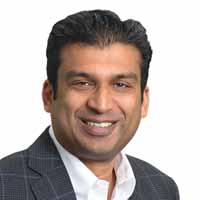What NOT to Do During Open Enrollment Time
Many employees just automatically pick the same benefits options year after year with little to no thought. That's a mistake. Instead, here are some points you really should consider for your own financial well-being.


Profit and prosper with the best of Kiplinger's advice on investing, taxes, retirement, personal finance and much more. Delivered daily. Enter your email in the box and click Sign Me Up.
You are now subscribed
Your newsletter sign-up was successful
Want to add more newsletters?

Delivered daily
Kiplinger Today
Profit and prosper with the best of Kiplinger's advice on investing, taxes, retirement, personal finance and much more delivered daily. Smart money moves start here.

Sent five days a week
Kiplinger A Step Ahead
Get practical help to make better financial decisions in your everyday life, from spending to savings on top deals.

Delivered daily
Kiplinger Closing Bell
Get today's biggest financial and investing headlines delivered to your inbox every day the U.S. stock market is open.

Sent twice a week
Kiplinger Adviser Intel
Financial pros across the country share best practices and fresh tactics to preserve and grow your wealth.

Delivered weekly
Kiplinger Tax Tips
Trim your federal and state tax bills with practical tax-planning and tax-cutting strategies.

Sent twice a week
Kiplinger Retirement Tips
Your twice-a-week guide to planning and enjoying a financially secure and richly rewarding retirement

Sent bimonthly.
Kiplinger Adviser Angle
Insights for advisers, wealth managers and other financial professionals.

Sent twice a week
Kiplinger Investing Weekly
Your twice-a-week roundup of promising stocks, funds, companies and industries you should consider, ones you should avoid, and why.

Sent weekly for six weeks
Kiplinger Invest for Retirement
Your step-by-step six-part series on how to invest for retirement, from devising a successful strategy to exactly which investments to choose.
It’s that time of year: Summer vacation seems like a distant memory, fall weather is taking root, and open enrollment season is here. That means it’s time to make your annual benefits selections.
With so many competing demands on your time, you may be tempted to stick with the selections you made last year. In fact, more than half of employees report spending less than one hour reviewing their benefits information each year — about the time it takes to get a haircut.
Being “financially well” means making thoughtful choices about your daily expenses, achieving important financial goals — and protecting yourself against key financial risks. Of the three, protection is most often overlooked. Yet, when faced with an unexpected event, such as disability, a critical illness, an accident or the passing of a loved one, it is easy to fall behind on monthly bills and tap your retirement account for emergency funds.
From just $107.88 $24.99 for Kiplinger Personal Finance
Become a smarter, better informed investor. Subscribe from just $107.88 $24.99, plus get up to 4 Special Issues

Sign up for Kiplinger’s Free Newsletters
Profit and prosper with the best of expert advice on investing, taxes, retirement, personal finance and more - straight to your e-mail.
Profit and prosper with the best of expert advice - straight to your e-mail.
Taking the time to weigh whether your current offerings still meet your personal financial needs during open enrollment is an important opportunity to improve your financial wellness.
Here are some common questions you should ask yourself during open enrollment.
1) How long would my non-retirement savings last if I couldn’t work due to a disability?
If your answer is less than six months, you’re not alone. About two-thirds (65%) of employees say they could not cover six months’ expenses if income were lost, according to a study by Prudential. Nearly half (49%) feel very or somewhat unprepared to fund expenses if disability occurs.
Fewer than two in three workers can correctly identify what disability insurance is, according to research by LIMRA reported in 2018. (Answer: It is insurance that replaces lost income if a person cannot work due to a disability.) Fewer than half (43%) recognize that short-term disability insurance usually provides paid leave after routine childbirth — even though this is a common occurrence.
Others underestimate the risk of becoming disabled — assuming it “will never happen to me.” Only 23% of employees recognize that a 20-year-old worker has a 1 in 4 chance of becoming disabled before they retire.
When thinking about what coverage level is right for your situation, keep in mind that income from disability insurance is generally taxable when the employer pays the premium, so you may need a higher level of coverage to get the after-tax amount you need.
2) What is the “value of all I do,” and how much financial support would my loved ones need if I were not around?
The death benefit from life insurance can act as a safety net that helps beneficiaries stay on track with their financial goals after the loss of a loved one. Life insurance isn’t just about covering the loss of your salary — it’s about making sure your family continues to be cared for in other ways, including caretaking, cooking, housecleaning and providing transportation for family members.
Many employees underestimate how much life insurance they need. Forty percent believe that an amount equal to 3x their salary (or less) is sufficient, versus the industry-recommended 7-10x salary. When deciding how much coverage you need, consider the value of all you do, especially if you have young children. Keep in mind the rapidly rising cost of college and child care.
Many employers offer educational tools, including calculators, to help you decide what coverage level is right for your household. If your employer offers spousal coverage, consider whether that makes sense for your family.
3) How would I fund out-of-pocket expenses resulting from a major health event?
Employers are shifting responsibility for more health care costs to employees by offering policies with higher deductibles and co-pays. As a result, millions of Americans report problems paying medical bills, including about 6 in 10 who were covered by medical insurance at the time of treatment, according to the Kaiser Family Foundation.
Increasingly, employers are offering critical illness insurance and accident insurance to supplement an employee’s existing medical and disability insurance benefits. These insurance products can provide additional cash to help cover eligible medical and non-medical out-of-pocket expenses, or to offset a portion of lost wages.
As you review your needs, bear in mind that 1 in 3 Americans will develop cancer during their lifetime, and the CDC reports that emergency rooms logged nearly 40 million injury-related visits in one year — that’s one for every eight Americans. Events like these can trigger high out-of-pocket expenses for you and your family.
4) What other benefits should I consider?
Your employer may offer niche benefits that may address additional needs, such as tuition reimbursement, a student loan repayment plan, pet insurance and commuter benefits.
Many employers also offer tax-preferred savings vehicles. Employees who enroll in high-deductible health plans may have the opportunity to contribute to a health savings account (HSA). HSAs have a triple tax benefit: both contributions and earnings are tax free, as are withdrawals to pay for qualified health care expenses. Moreover, you can roll over the funds from year to year, invest the funds, and even use them for qualified health care expenditures during retirement.
Although retirement plans are often separate from open enrollment season, consider re-evaluating your level of contributions to your 401(k) plan. Any increase you can manage could have a measurable impact on your long-term retirement savings.
Think of open enrollment as an employer-sponsored buffet, with a healthy array of benefits designed to protect you from life’s unexpected events, reduce financial stress, and improve your financial well-being.
Profit and prosper with the best of Kiplinger's advice on investing, taxes, retirement, personal finance and much more. Delivered daily. Enter your email in the box and click Sign Me Up.

Vishal Jain is the Head of Financial Wellness Strategy and Development for Prudential Financial. He is responsible for defining Prudential's financial wellness strategy and partnering with a wide range of stakeholders across Prudential in developing and delivering financial wellness capabilities and solutions to the market. For more information, please contact Vishal at vishal.jain@prudential.com.
-
 Nasdaq Leads a Rocky Risk-On Rally: Stock Market Today
Nasdaq Leads a Rocky Risk-On Rally: Stock Market TodayAnother worrying bout of late-session weakness couldn't take down the main equity indexes on Wednesday.
-
 Quiz: Do You Know How to Avoid the "Medigap Trap?"
Quiz: Do You Know How to Avoid the "Medigap Trap?"Quiz Test your basic knowledge of the "Medigap Trap" in our quick quiz.
-
 5 Top Tax-Efficient Mutual Funds for Smarter Investing
5 Top Tax-Efficient Mutual Funds for Smarter InvestingMutual funds are many things, but "tax-friendly" usually isn't one of them. These are the exceptions.
-
 Social Security Break-Even Math Is Helpful, But Don't Let It Dictate When You'll File
Social Security Break-Even Math Is Helpful, But Don't Let It Dictate When You'll FileYour Social Security break-even age tells you how long you'd need to live for delaying to pay off, but shouldn't be the sole basis for deciding when to claim.
-
 I'm an Opportunity Zone Pro: This Is How to Deliver Roth-Like Tax-Free Growth (Without Contribution Limits)
I'm an Opportunity Zone Pro: This Is How to Deliver Roth-Like Tax-Free Growth (Without Contribution Limits)Investors who combine Roth IRAs, the gold standard of tax-free savings, with qualified opportunity funds could enjoy decades of tax-free growth.
-
 One of the Most Powerful Wealth-Building Moves a Woman Can Make: A Midcareer Pivot
One of the Most Powerful Wealth-Building Moves a Woman Can Make: A Midcareer PivotIf it feels like you can't sustain what you're doing for the next 20 years, it's time for an honest look at what's draining you and what energizes you.
-
 I'm a Wealth Adviser Obsessed With Mahjong: Here Are 8 Ways It Can Teach Us How to Manage Our Money
I'm a Wealth Adviser Obsessed With Mahjong: Here Are 8 Ways It Can Teach Us How to Manage Our MoneyThis increasingly popular Chinese game can teach us not only how to help manage our money but also how important it is to connect with other people.
-
 Looking for a Financial Book That Won't Put Your Young Adult to Sleep? This One Makes 'Cents'
Looking for a Financial Book That Won't Put Your Young Adult to Sleep? This One Makes 'Cents'"Wealth Your Way" by Cosmo DeStefano offers a highly accessible guide for young adults and their parents on building wealth through simple, consistent habits.
-
 Global Uncertainty Has Investors Running Scared: This Is How Advisers Can Reassure Them
Global Uncertainty Has Investors Running Scared: This Is How Advisers Can Reassure ThemHow can advisers reassure clients nervous about their plans in an increasingly complex and rapidly changing world? This conversational framework provides the key.
-
 I'm a Real Estate Investing Pro: This Is How to Use 1031 Exchanges to Scale Up Your Real Estate Empire
I'm a Real Estate Investing Pro: This Is How to Use 1031 Exchanges to Scale Up Your Real Estate EmpireSmall rental properties can be excellent investments, but you can use 1031 exchanges to transition to commercial real estate for bigger wealth-building.
-
 Should You Jump on the Roth Conversion Bandwagon? A Financial Adviser Weighs In
Should You Jump on the Roth Conversion Bandwagon? A Financial Adviser Weighs InRoth conversions are all the rage, but what works well for one household can cause financial strain for another. This is what you should consider before moving ahead.